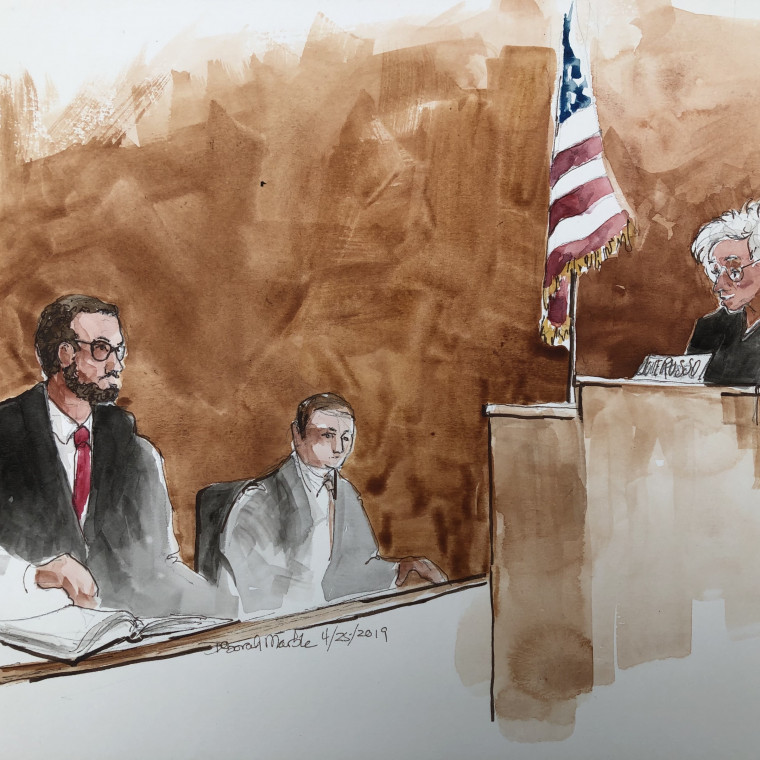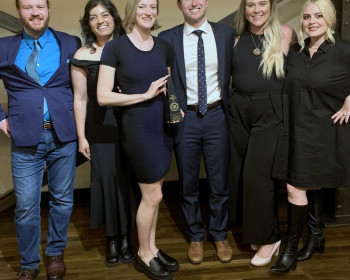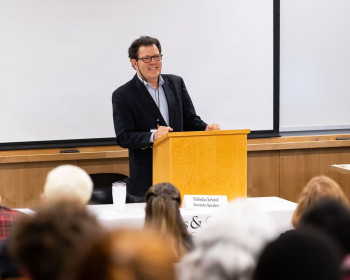Student Makes Oral Argument in Tax Case Before US District Court
Open gallery

In a case which has garnered national attention, Lewis & Clark Law School student John MacMorris-Adix, a 3L and a tax clinic legal intern, made the oral argument on an issue of first impression in the U.S. District Court last week. Though some U.S. District Courts have ruled on the issue, no U.S. appellate courts have. Appearing before Judge Russo in the Mark O. Hatfield (Portland) U.S. District Courthouse, MacMorris-Adix argued for the plaintiff in Hockin v. United States of America.
The Low Income Taxpayer Clinic (LITC) assisted the client in filing a lawsuit against the IRS, seeking a refund in this case involving innocent spouse relief. Typically, married couples filing a joint tax return are jointly and severally liable for the tax burden. “Innocent spouse relief” refers to how a spouse can be relieved from that joint and several liability.
The U.S. Department of Justice (DOJ) filed a motion to dismiss the case on the grounds that U.S. District Courts lack jurisdiction of innocent spouse cases. The DOJ’s position is that under § 6015(e) of the Internal Revenue Code (26 U.S.C. § 6015(e)), only the U.S. Tax Court has jurisdiction of innocent spouse cases.
As stated above, this case has garnered national attention and support. The Harvard University Tax Clinic filed a fifty-page amicus brief opposing the DOJ’s motion to dismiss. In addition, the Hochin case is one of the cases which caused the National Taxpayer Advocate to recommend in her annual report to Congress that Code § 6015, the innocent spouse statute, be clarified so that the statute specifically provides that U.S. District Courts have jurisdiction to determine refunds based upon innocent spouse relief.
According to Lewis & Clark Clinical Professor of Law Jan Pierce, “No appellate court has ruled on the issue, and we believe that the law and the legislative history clearly show that District Courts have jurisdiction to determine the client’s entitlement to a refund based on innocent spouse relief.”
Scott Moede, Chief Deputy City Attorney for the City of Portland, is the pro bono attorney in charge of this case. He has assisted the tax clinic pro bono for 18 years.
“I was really proud of John and his delivery at the hearing,” said Moede. “The Judge had read the brief and did not want to review it in court. She wanted her questions answered, which required a thorough knowledge of the case and the ability to respond quickly. He handled it with a calm confidence.”
MacMorris-Adix, preparing to graduate from the law school in May, spoke of his time serving as an intern in the Low Income Taxpayer Clinic. “It was a great experience. These are your cases, you are in the driver’s seat - with support. It was invaluable training to start my law career, hopefully with a job in public defense.”
The Low Income Taxpayer Clinic has handled well over 80 innocent spouse cases in U.S. Tax Court over the last several years. The prototypical innocent spouse case involves a wife or former wife who is separated or divorced from the person (the ex) with whom she filed the joint return, and where the tax due is tax on the ex’s income or tax that is due from the ex’s income that has not been paid. A taxpayer cannot be relieved of the tax due on their own income.
The cases often involved a former husband who controlled the family finances and sometimes, there was physical or emotional abuse. Each of these factors “trump” any knowledge that the wife may have had that the return was inaccurate or that her ex would not pay the tax shown to be due on the return.
Judge Russo will issue her ruling shortly, and her ruling will determine what issues will be tried.
Law Communications is located in room 304 of Legal Research Center (LRC) on the law Campus.
MSC: 51
email jasbury@lclark.edu
voice 503-768-6605
Cell: 626-676-7923
Assistant Dean,
Communications and External Relations, Law School
Judy Asbury
Law Communications
Lewis & Clark Law School
10101 S. Terwilliger Boulevard MSC 51
Portland OR 97219

